More Benchmarks, Conclusion
Datamarck 0.0.4:
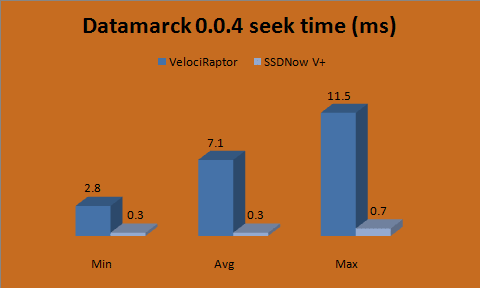
Datamarck didn't run into any of the irregularities that HDTune did with regards to access times, and the results require no explanation.
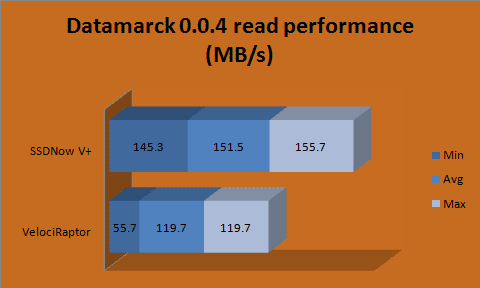
Again, this paints quite a different picture from HDTune, as it's now the VelociRaptor suffering from a low minimum read transfer rate (55.7MB/s), whilst the SSDNow V+ didn't dip below 145.3MB/s. The average and maximum read speeds of the VelociRaptor were similar to previous results, as it tops out just shy of 120MB/s. Pretty quick, but overshadowed by the SSDNow V+ crunching along 20% faster, at over 150MB/s.
CrystalDiskMark 2.2:
This application tests sequential transfer read/write speeds, and also randomised read/write transfer rates at 512k and 4k file sizes.
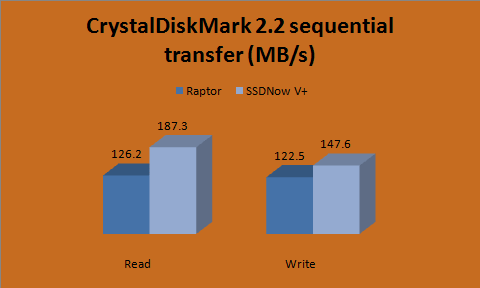
As before, sequential tests bring out the best numbers from a drive. Kingston's SSD is 48% faster than the VelociRaptor in the read tests; although that margin again drops, this time to 20%, in write performance.
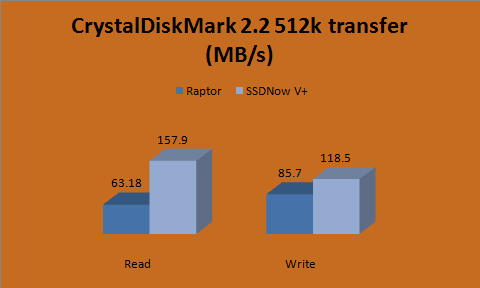 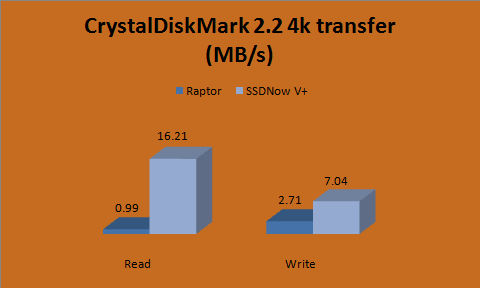
The 512k test shows some remarkable discrepancies, as the SSD doles out a 150% thumping in read testing, which dwindles to 38% in write operations.
The 4k test reinforces the previous results; in read tests, at small file sizes, the two technologies performances are worlds apart; however, in a by-now familiar pattern, the write results are much closer.
Windows Boot Time:
A fresh install of Vista Ultimate x64 SP2 was prepared for each drive, and these are the results:
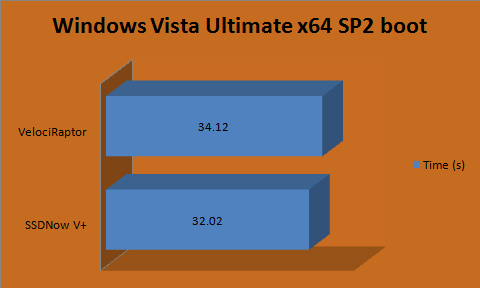
The SSD manages a slender 6% lead here, not really much to "write" home about. Ahem.
Crysis 1.2.1:
This test recorded the time taken to load the first level of Crysis, just after installation.
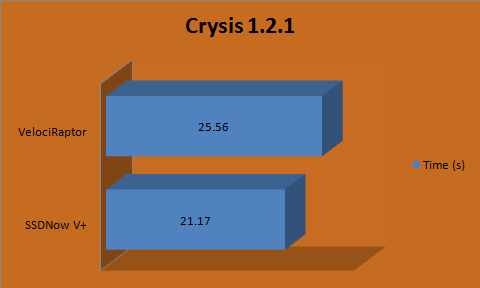
The second real-world test shows a more decisive win for the SSDNow V+, as it chalks up a 17% win.
Conclusion:
The general trend of results has been unquestionably in favour of the Kingston SSDNow V+. Where Western Digital's VelociRaptor can take the fight to this SSD, and others, is in size. In overall performance characteristics, the venerable VelociRaptor still hasn't been blown away (though the same can't be said for access times and IOPS), but it's clearly not the king of the pack anymore.
So, to answer to the proposition in the introduction, you wouldn't pay AU$20 more, for 4.5 times the capacity, if you're the kind of enthusiast that lives on the bleeding edge. The choice really couldn't be any clearer: 300GB of fast storage or 64GB of really fast storage, for around the same price. Take your pick!
|


